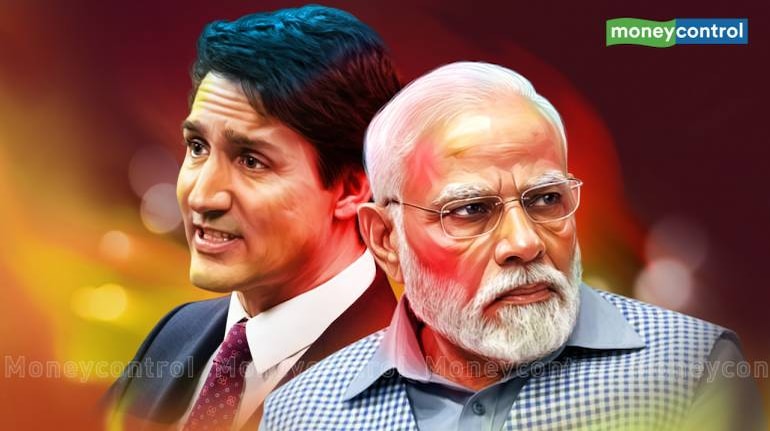



Canadian Prime Minister Justin Trudeau’s allegation linking India to the murder of a Canadian national in the country has posed a big challenge for the Western nations, especially the United States.
Most Western nations have expressed “deep concern” about Canada’s charges against India. But they don’t want to jeopardise relations with New Delhi either.
US President Joe Biden, in particular, has invested heavily in building strong ties with India. But Canada is the most important country for the US. And the ongoing row between Canada and India has now put them in a dilemma.
India has denied the charges and accused Canada of encouraging Khalistani elements by going soft on their anti-India activities in the country.
In a sign of the escalating diplomatic crisis, New Delhi issued a travel advisory for its citizens who are in Canada or plan to visit the country, following a Canadian travel advisory on India.
The Indian advisory warned that because of growing “anti-India activities” and “politically-condoned hate crimes and criminal violence,” Indian nationals should exercise utmost caution.
The visa service in the Indian missions in Canada also seem to have been suspended, according to BLS International Services Limited, a service provider for government and diplomatic missions.
“Due to operational reasons, with effect from 21 September 2023, Indian visa services have been suspended till further notice,” the BLS website said. It added that the website should be checked for further updates.
Trudeau told the Canadian parliament on Tuesday that the country’s intelligence agencies have been pursuing credible allegations of India’s involvement in the killing of Hardeep Singh Nijjar — a Canadian-Sikh leader who India describes as a terrorist — in the parking lot of a gurdwara in Surrey, in British Columbia, in June.
Canada followed up the charge by expelling “a senior Indian diplomat” and later identified him as the station chief of the Research and Analysis Wing (RAW), India’s external spy agency.
India responded to the expulsion by asking “a senior Canadian diplomat” to leave the country in five days.
Trudeau claimed that he shared the information with Indian Prime Minister Narendra Modi when the two held a 10-minute meeting on the sidelines of the G-20 summit in New Delhi on September 10.
The Canadian Prime Minister said he had also shared his findings regarding India’s involvement with his partners in the “Five Eyes Alliance”— Canada, US, UK, Australia, and New Zealand — that allows a broad range of intelligence sharing among the countries.
He further added that he had shared the information with the US and French Presidents, and the Prime Ministers of Britain and Australia.
None of the top leaders of these countries have so far spoken on the issue. However, officials of the US, Britain, and Australia urged India to join the probe with Canada to get to the bottom of the issue.
India's ministry of external affairs has rejected the charges and called them "absurd."
"Such unsubstantiated allegations seek to shift the focus from Khalistani terrorists and extremists, who have been provided shelter in Canada and continue to threaten India's sovereignty and territorial integrity," it said.
This row has put countries in the Western bloc in a spot.
US-Canada bhai-bhaiThe Canada-US partnership is based on shared geography, similar values, common interests, strong personal connections, and powerful economic ties that sustain millions of jobs in the two countries. They also have a strong defence and security agreement.
The two share a 9,000-km-long land border through which an estimated 4,00,000 people cross every day. The bilateral trade between the two sides was worth over $1.2 trillion in 2022, and accounted for two-thirds of Canada’s global trade.
In addition, 800,000 Canadians live in the US. Over a million Americans live in Canada.
No further escalationBiden refrained from making any comments while he was attending the UN General Assembly session in New York, where he asked nations to unite against the Russian invasion of Ukraine.
The US President could take the lead in convincing his western allies not to escalate the situation further. India is an important partner for most of them in the geopolitical theatre of Asia, where China’s muscle-flexing has been of concern.
Therefore, a lot of ‘behind-the-scenes’ diplomatic initiatives are expected in the coming days.
Indian foreign minister S Jaishankar is scheduled to meet his counterparts of the QUAD countries — the US, Australia, and Japan — on the sidelines of the UN General Assembly in the coming days. Jaishankar will also be meeting the foreign ministers of Russia and China there.
Domestic compulsionsNonetheless, despite these diplomatic initiatives that are bound to take place in the next few days, a lot will also depend on how the top leadership of India and Canada want to project their handling of the crisis for their domestic audience.
Indian Prime Minister Modi will be seeking a fresh mandate in the parliamentary elections of 2024. He would not like the Canada issue to spoil the positive gains from the G-20 summit under his leadership.
Trudeau will face parliamentary elections only in 2025. But he is trailing by 20 points behind his Conservative Party rivals. He may use his tough stand against India to shore up his support base.
But a lot will depend on what the Canadian investigations on the killing reveal. If Trudeau cannot prove India was involved, his political credibility could take a serious beating.
However, if they reveal Indian involvement, it will be difficult for Biden and other leaders to ignore Canada’s investigation, and New Delhi could face a huge challenge in the coming days to prove its innocence.
Discover the latest Business News, Sensex, and Nifty updates. Obtain Personal Finance insights, tax queries, and expert opinions on Moneycontrol or download the Moneycontrol App to stay updated!
Find the best of Al News in one place, specially curated for you every weekend.
Stay on top of the latest tech trends and biggest startup news.